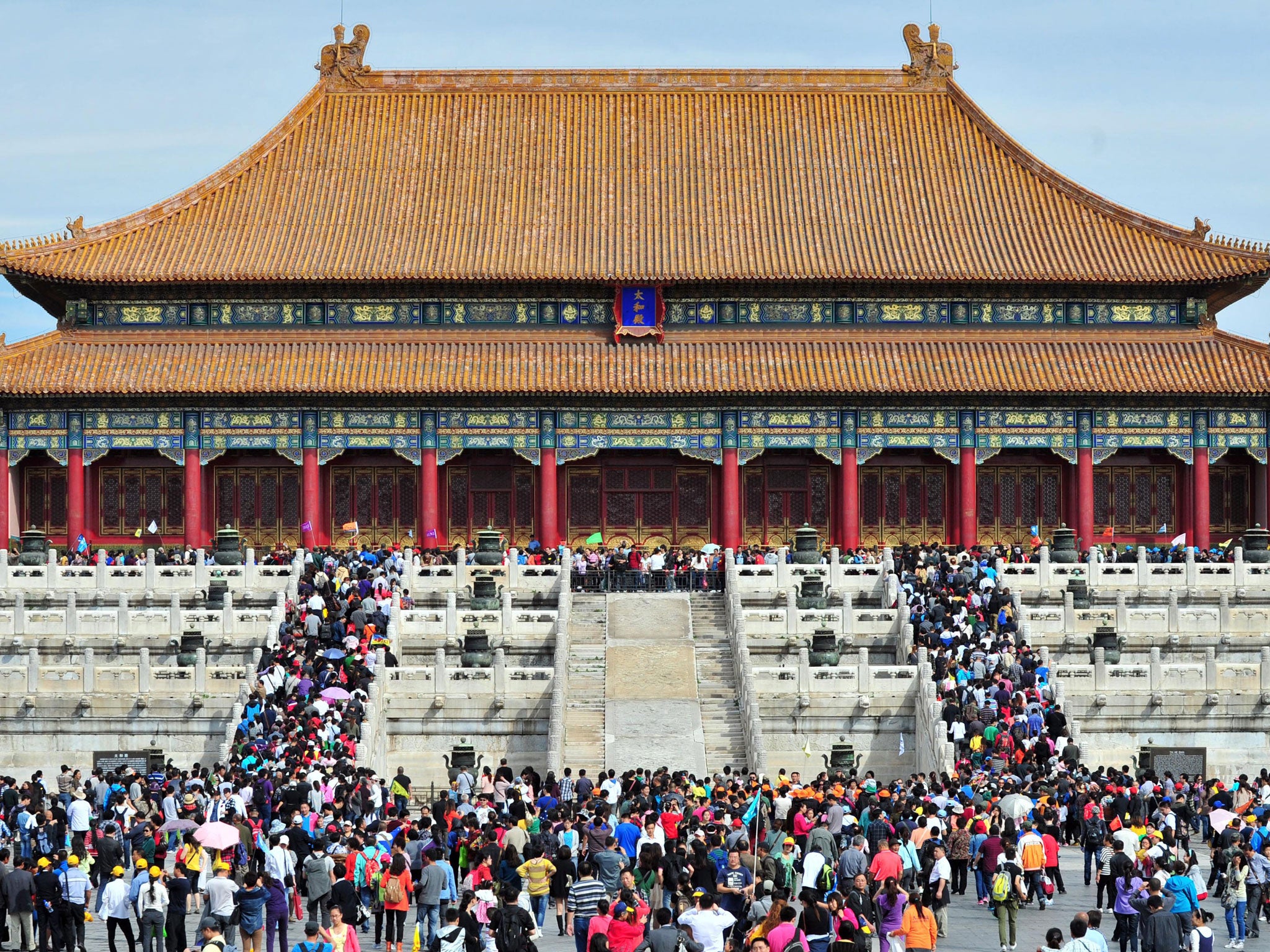Lifestyles of pampered pooches in China's Forbidden City revealed
A new book and exhibition about the Forbidden City tell the tale of privileged pup Big Luck

Your support helps us to tell the story
From reproductive rights to climate change to Big Tech, The Independent is on the ground when the story is developing. Whether it's investigating the financials of Elon Musk's pro-Trump PAC or producing our latest documentary, 'The A Word', which shines a light on the American women fighting for reproductive rights, we know how important it is to parse out the facts from the messaging.
At such a critical moment in US history, we need reporters on the ground. Your donation allows us to keep sending journalists to speak to both sides of the story.
The Independent is trusted by Americans across the entire political spectrum. And unlike many other quality news outlets, we choose not to lock Americans out of our reporting and analysis with paywalls. We believe quality journalism should be available to everyone, paid for by those who can afford it.
Your support makes all the difference.They are venerated as man’s best friend – but one Chinese dog led a life that would turn even the most pampered of pooches green with envy.
A newly published book tells the tale of Big Luck, who lived in China’s Forbidden City during the reign of the Guangxu Emperor (1875 – 1908), Live Science reported.
The one metre-long pup, whose breed and sex are unknown, was so special that it had its own silk gown, the authors of The Forbidden City: Inside the Court of China' s Emperors have revealed.
The luxurious attire would have covered Big Luck from snout to tail and was decorated with images of peonies and an inscription of the dog’s name.
It is just one of the treasures on show at the Forbidden City exhibition at Toronto’s Royal Ontario Museum, which the book is an accompaniment to.
The Forbidden City was the Chinese imperial palace, which was home to 24 emperors for nearly 500 years between 1420 and 1911. Located in the centre of Beijing, it is now known as the Palace Museum and is a major tourist attraction.
Curator Chen Shen told Live Science that the silk outfit was a “surprise” find for him and his team during a trip to the Palace Museum to source artefacts for the exhibition.
More than 200 relics have been transported from the Forbidden City to North America, many of which have never before left the former imperial seat.
True to its name, the 980-building complex was off limits to the public and could only be accessed by the emperor, his immediate family, the royal women and thousands of castrated male servants known as eunuchs.
But canines held pride of place. "In the Forbidden City, royal dogs received royal treatment," Shen and co-author Wen-Chien Cheng, who is also a curator at the Royal Ontario Museum, write in their book.
"They reportedly lived in pavilions with marble floors, sleeping on silk cushions, tended by specialized eunuchs who worked for the Dog Raising Office," they write.
"Court ladies in particular entertained themselves by walking, playing with, and dressing up their dogs. Every year, dozens of luxurious dog outfits were commissioned, the pet's name carefully recorded on the lining."
However, Big Luck was one of the last of these privileged pooches. During the dog’s lifetime, the Qing Dynasty was falling into decline, its military was becoming weak in comparison to Western power, and China was experiencing civil unrest.
In 1900, Beijing was occupied by a foreign army and the Forbidden City was looted, before the last Chinese emperor fled in 1911.
But the doggy legacy didn’t quite die out. The authors write: "Many of the world's most popular lapdogs, such as the Pekinese jinghabagou and pug, originated in China.”
Join our commenting forum
Join thought-provoking conversations, follow other Independent readers and see their replies
Comments